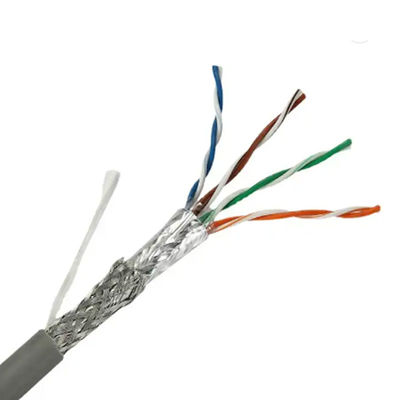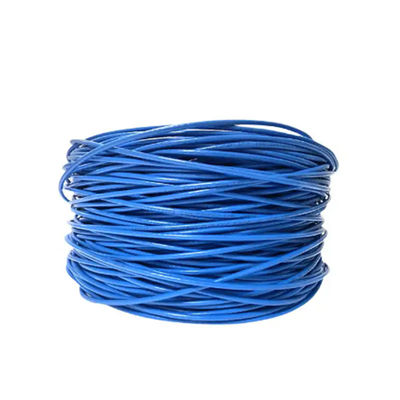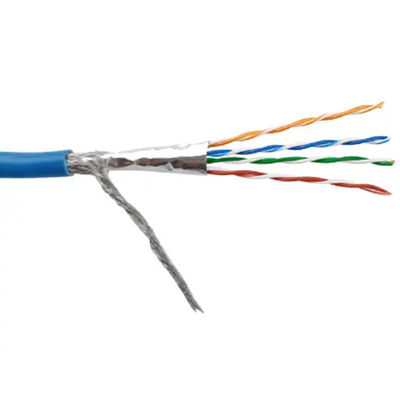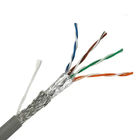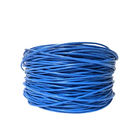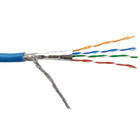-
Insulated Power Cable
-
Flexible Power Cable
-
Armoured Power Cable
-
Coaxial Power Cable
-
Solar Panel Power Cable
-
Electrical Building Wire
-
PVC Flat Cable
-
Bare Ethernet Cable
-
Fire Resistant Cables
-
Copper Clad Aluminum Wire
-
FTTH Fiber Optic Cable
-
Fiber Optic Patch Cord
-
Speaker Wire Cable
-
Mineral Insulated Cable
-
Bare Conductor Cable
-
 RoseThis mutual cooperation last for about 4 years,and must admit the service they provide is aboved expected. Our cooperation will last for many years.
RoseThis mutual cooperation last for about 4 years,and must admit the service they provide is aboved expected. Our cooperation will last for many years.
Home Automation Bare Ethernet Cable Cat6 CCA 50ft 23AWG flame retardancy
| Place of Origin | Jiangsu China |
|---|---|
| Brand Name | Jiangnan |
| Certification | CE, RoHS, CCC,ISO |
| Model Number | CAT6,Cat5 |
| Minimum Order Quantity | 1 Roll(100m or 305m) |
| Price | $0.01 - $2.00/meter |
| Packaging Details | Customized logo(Min. order 100000 meters) Customized packaging(Min. order 100000 meters) Graphic customization(Min. order 100000 meters) |
| Supply Ability | 50000meters/7days |

Contact me for free samples and coupons.
WhatsApp:0086 18588475571
Wechat: 0086 18588475571
Skype: sales10@aixton.com
If you have any concern, we provide 24-hour online help.
x| Application | Telephony, Home Automation And Long-distance Video Transmission Technologies | Conductor Type | Stranded |
|---|---|---|---|
| Product Name | Utp CAT6 Ethernet Lan Cable | Type | Insulated |
| Conductor Material | Copper | Material | Copper+HDPE |
| Sample | Free Sample | Color | Blue, Grey, Green, Orange Yellow, Violet Or Customer Spec |
| Highlight | Bare Ethernet Cable flame retardancy,Home Automation Bare Ethernet Cable,Home Automation Cat6 Ethernet Cable |
||
GearIT Cat 6 Ethernet Cable CCA(50ft) LAN Cable UTP Internet Cable Support Cat6 / Cat5e / Cat5
Electrical performance is far more than EN 50173-1, ISO/IEC 11801, ANSI/TIA-568C.2 standard.
The flame retardancy is in accordance with GB/18380.12, JIS C 3005 standard.
Loop resistance: < 180Ω/km
Characteristic impedance: 100Ω/-7Ω+13Ω
Electrostatic capacity: < 56pF/m
Electrostatic coupling: < 3.3pF/m
Bending radius:
When fixing: ≥ 44mm
When towing: ≥ 55mm
Tensile strength: ≤ 110N
Temperature range:
When working: -20℃~+60℃
Shielded (STP) vs. Unshielded (UTP)
Since all Ethernet cables are twisted pairs, manufacturers use shielding to further protect the cables from interference. Unshielded twisted pair can easily be used for the cable between the computer and the wall, but you'll want to use shielded cable in areas of high interference and in areas where the cable is run outside or inside walls.
![]()
Types of Ethernet Cables
Just like any other technology, not all Ethernet cables are created equal. Instead, there are different classes, each with different levels of power and features, but mostly speed.
When looking for Ethernet cables, you may have noticed that they are marked as Cat-5, Cat-5e, or Cat-6. "Cat" here is the abbreviation of Category, and the numbers represent the specifications it supports. Although there are cable categories from 1 to 4, they are either obsolete or technically not considered part of the Ethernet standard. This means you don't have to worry about anything below Cat-5. Even Cat-5 itself is old and not recommended for any new installations, but you may still find it in circulation or in existing installations.
Category 5 (Cat-5) cables can support data transfer speeds up to 100Mbps and a bandwidth of 100MHz, but they don't have any shielding. Shielding helps protect cables from electromagnetic interference from external sources.
Category 5e (Cat-5e) cable is an improved version of Cat-5. It's not an officially designated category, but Cat-5e cables can support speeds up to 1Gbps, 100MHz bandwidth, and have better crosstalk immunity. Cat-5e is the most common Ethernet cable on the consumer market today.
Category 6 cables are a big step up from Cat-5e. While they're only rated for 1Gbps over longer distances, you can hit 10Gbps over shorter distances of up to 37 meters (121 feet). This is possible because of better shielding and a higher 250MHz bandwidth.
Category-6a is a more advanced version of the Cat-6 specification. It supports twice the bandwidth of Cat-6 and speeds up to 10Gbps at 500MHz for distances up to 100 meters.
Class 7 is an outlier. It was ratified as a standard before Cat-6a, but despite supporting 10Gbps speeds up to 100 meters and a bandwidth of 600MHz, it has yet to gain widespread adoption. Part of the reason Cat-7 is less popular is its proprietary nature. It was developed by a group of companies and is not an Institute of Electrical and Electronics Engineers (IEEE) standard. It is also not approved by the Telecommunications Industry Association (TIA). Additionally, Cat-7 cables use proprietary connectors.
Category 7a is an improvement over Cat-7, supporting 40Gbps speeds up to 50 meters and 100Gbps speeds up to 15 meters. Unfortunately, despite being capable, it suffered the same fate as Cat-7 because it had the same problem, a proprietary standard.
Category 8 cable comes after Cat-6a in the TIA and IEEE approved standards. Cat-8 cables support bandwidths up to 2000MHz and are rated at speeds of 25Gbps or 40Gbps for lengths up to 30 meters. This is definitely an improvement, but Cat-8 cables are generally more expensive than lower category cables.
As you consider your options, remember that with the right tools, you can cut your own Ethernet cables so you'll always have the exact length you need.
We are a professional manufacturer. We can control your order from the first begining to the last.
2. How can I get a sample to test your quality?
The samples are free for you. New clients are expected to pay for the courier cost.
3. What’s your Minimum Order Quantity?
Normally 100m. However, the cable is very heavy.
You'd better order a suitable quantity to avoid the high freight.
Sea transportation is the best option.
4. Can I get a discount?
It depends on your quantity, We can make a discount and afford the freight. Pls kindly contact us.
5. Does your company accept OEM production?
Yes, we do.




